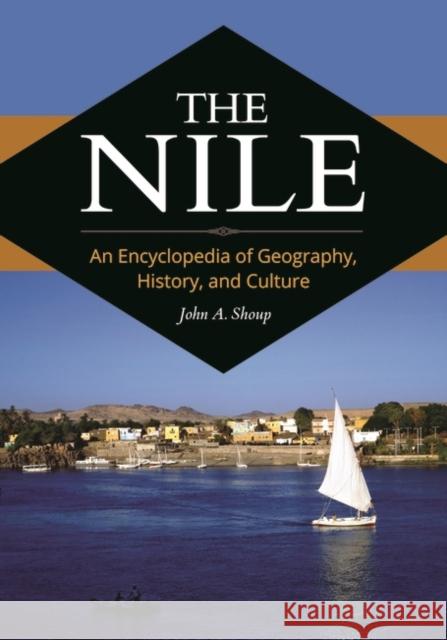The Nile: An Encyclopedia of Geography, History, and Culture » książka
The Nile: An Encyclopedia of Geography, History, and Culture
ISBN-13: 9781440840401 / Angielski / Twarda / 2017 / 420 str.
The Nile River has been the most important natural resource for Egyptians and other Africans who live along its shores for thousands of years, bringing life to an otherwise arid and bleak desert region. Without the Nile, civilizations in Egypt could not have achieved such success. The physical, cultural, religious, and political impacts of this mighty riverway are enormous. This one-volume encyclopedia explores a breadth of topics related to the Nile River, from ancient irrigation techniques to 19th-century exploration and from current environmental controversies to concerns regarding man-made Lake Nasser. Readers will be able to explore beyond the physical aspects of the world's longest river to achieve an understanding of the Nile River's larger role in society.After a preface and introduction that provides general background information on the source, tributaries, and mouth of the Nile, the encyclopedia presents thematic essays that cover topics such as the Nile's physical geography; history; environmental issues and controversies; culture, religion, and legend; and politics. More than 100 entries cover key individuals, specific locations, geology and structure, significant expeditions, gods and deities, and folklore related to the Nile. In addition, the work provides an appendix of primary document excerpts from explorers' journals and more recent legislation on damming as well as an appendix of place names, interesting sidebars, and a helpful chronology of key events.











